Melanie Pinola offers 7 alternatives to Apple’s MacBook Air. Lenovo’s X1 looks very promising indeed.
Originally posted here:
Alternatives to the MacBook Air
Melanie Pinola offers 7 alternatives to Apple’s MacBook Air. Lenovo’s X1 looks very promising indeed.
Originally posted here:
Alternatives to the MacBook Air
Synthetic biology attempts to generate biomolecules with new and/or improved activities for use as, say, drugs or fuel. One way of producing new biomolecules involves directed evolution, in which specific functions are selected for, but that has been slow and labor intensive. A faster method comes from Esvelt et al.
For a terrifically long-term video project, Sam Klemke filmed himself every year for 35 years. He then ran these clips in reverse order to simulate himself traveling backwards in time. Watch him de-age three decades in less than 10 minutes. More
Between their pincers and poisonous stingers, you’d really think that scorpions are already more than scary enough for one species. But that still leaves their unearthly – and unexplained – ability to glow a strange blue color in ultraviolet light. More
NASA just released this video last week showing a huge comet blasting straight into the sun, and the resulting explosion is spectacular.
adeelarshad82 writes “I'm sure most of us looking for an HDMI cable have been in a situation where a store clerk sidles up, offers to help and points to some of the most expensive HDMI cables — because apparently these are 'superior cables' which we all absolutely need for the best possible home theater experience. Well, as it turns out the claims are, for the vast majority of home theater users, utter rubbish. According to tests ran on five different HDMI cables, ranging in price from less than $5 up to more than $100, HDMI brands really don't matter.”
Read more of this story at Slashdot.
See the original article here:
HDMI Brands Don't Matter
dogsbreath writes “An Al Jazeera article provides fascinating insight about how engineers for one of the Libyan cell providers in the rebel held East have kept the system going in the middle of a civil insurrection. Administering a now-free cellular system in a war zone brings new meaning to the term BOFH as the engineers deal with bandwidth hogs and prioritize international traffic.
A technical decision to keep a copy of the user database (the HLR) in Benghazi was crucial to keeping people’s phones on line. There are reasons besides earthquakes and Tsunamis to keep your data backed up in geographically diverse locations. The report expands on and corrects the WSJ article covered on Slashdot before.”
Read more of this story at Slashdot.
View original post here:
Keeping a Cellphone System Going In a War

via http://www.juanandresmartinez.com/
faved by macromedios
More:
Mr. Martínez
Blogger site back online after nearly one-day outage caused by a maintenance-related glitch.
Read More:
Google revives Blogger after outage
Put aside your critical ego for a moment and enjoy designer Tommaso Gecchelin’s vision of an Apple MacBook circa 2020. Keyboards, mice and 2-dimensional screens are passe. Hit the jump for the future.
Envisage a computer nearly paper thin, able to shape shift from metal to plastic. Thanks to molecular manufacturing, a micro-lattice nano material enables you to shrink the dimensions to fit into your pocket. Nano technology miniaturizes familiar technologies into thin sheets of composites, each serving a separate function. One layer is photo voltaic for infinite battery life. One layer projects ultrasound waves for tactile feedback. Another layer works like a pelican cam to capture the real world in 3D while a separate layer works like a holographic emitter. And of course, everything is wireless. No ports, no cables. I only have one question.
Will it blend?
Designer: Tommaso Gecchelin
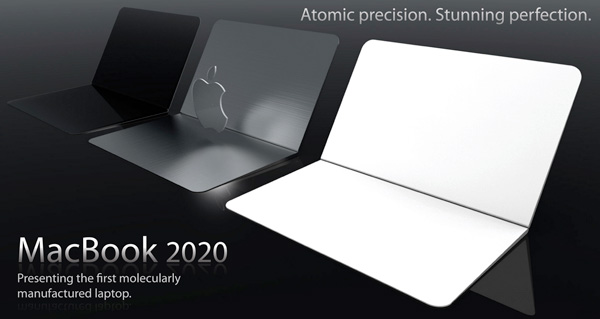
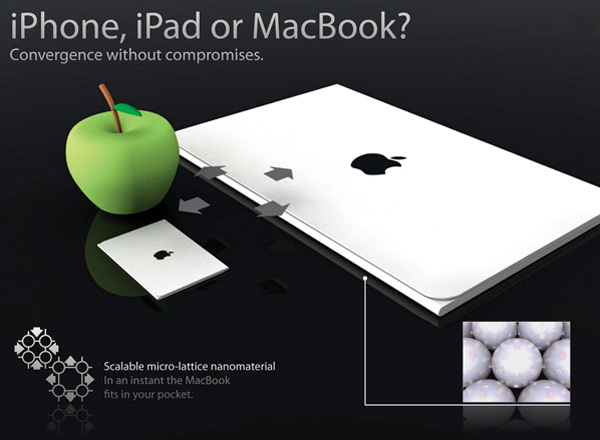
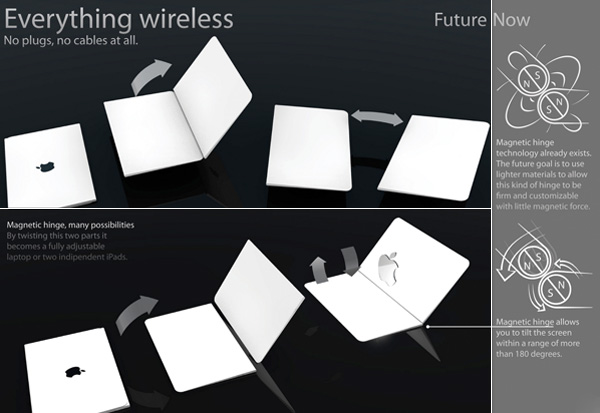
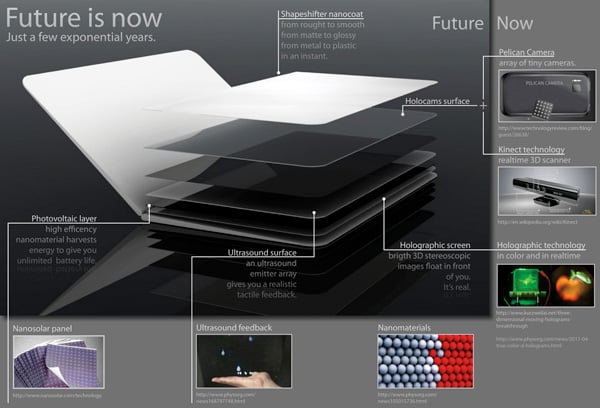

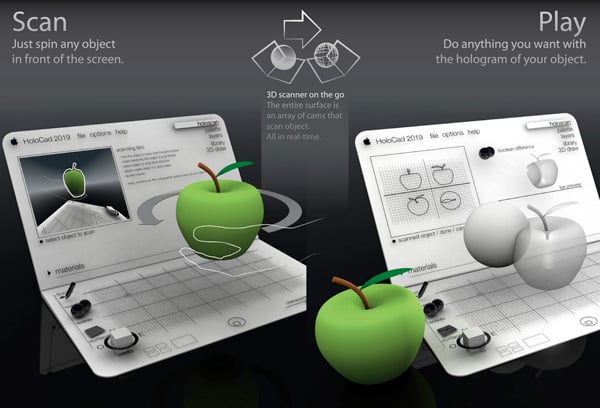
———-
Yanko Design
Timeless Designs – Explore wonderful concepts from around the world!
Yanko Design Store – We are about more than just concepts. See what’s hot at the YD Store!
Read the original post:
MacBook in 2020